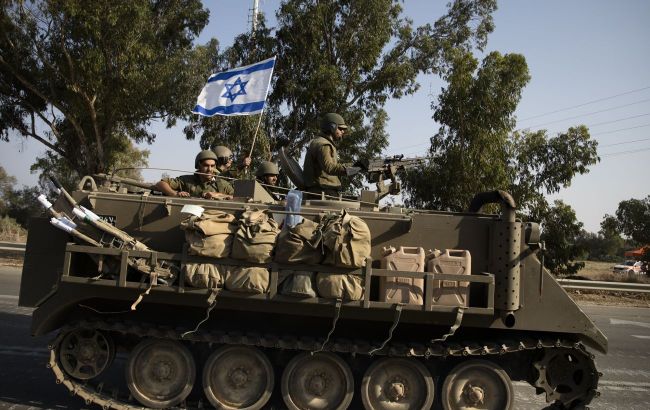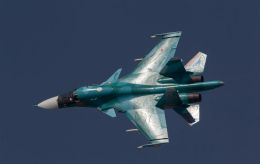Iran strikes Israel with hundreds of rockets, and IDF preparing response: All details
 Photo: Israeli military (Getty Images)
Photo: Israeli military (Getty Images)
Iran launched a massive missile attack on Israel, firing nearly two hundred rockets at Tel Aviv and other cities. The IDF announced that a response would come soon.
For more details on what happened and the consequences, see the material by RBC-Ukraine.
Iran launched nearly two hundred rockets at Israel, with air raid sirens sounded across almost the entire territory of the country. This attack involved a total of 181 ballistic missiles.
The assault followed Israel's destruction of the leadership of the Lebanese terrorist group Hezbollah. Subsequently, Israel also commenced a ground military operation against militants in southern Lebanon.
According to Channel 12 in Israel, the attack on October 1 was particularly intense in the direction of Dimona, where a nuclear research center is located. A double-digit number of rockets were fired at that area.
This marks the second missile attack by Iran against Israel this year. The first occurred in April in response to Israeli Air Force strikes on Iranian diplomatic facilities in Syria.
What Iran says
The Islamic Revolutionary Guard Corps of Iran stated that the attack on Israel was carried out in response to the killing of Hamas political bureau chief Ismail Haniyeh in July, Hezbollah leader Hassan Nasrallah, and Quds Force General Abbas Nilforushan last week. This was reported by Iran's semi-official news agency Tasnim. According to the statement, Israel will face a "harsh response" if it retaliates against the attack.
Iran's mission to the UN described the missile strike as a "legal, rational, and legitimate response" to Israel's attacks on "Iranian nationals and interests."
The order to launch rockets at Israel was given personally by the country's Supreme Leader Ayatollah Ali Khamenei, a senior Iranian official told Reuters.
What Israel says
The Iranian missile strike was serious and will have consequences, stated Israeli military spokesperson Rear Admiral Daniel Hagari. He declined to specify how and when Israel would respond, mentioning that he was unaware of any casualties from the attack.
"We are on high alert both defensively and offensively," Hagari stated during a television broadcast.
"We will defend the citizens of the State of Israel. This attack will have consequences. We have plans, and we will operate at the place and time we decide," emphasized the IDF spokesperson.
Global reactions
In response to the attack, the United States assisted Israel in intercepting missiles, with American destroyers in the eastern Mediterranean reportedly shooting down several Iranian missiles, according to sources from the Pentagon speaking to the Washington Post on condition of anonymity.
The White House stated that President Joe Biden and Vice President Kamala Harris are monitoring the situation from the White House and receiving regular updates from their national security team. Biden also ordered US military assistance to Israel in defending against Iranian attacks and intercepting missiles.
Former US President Donald Trump reacted to the attack, saying, "Look at the World today — Look at the missiles flying right now in the Middle East, look at what’s happening with Russia/Ukraine, look at Inflation destroying the World. NONE OF THIS HAPPENED WHILE I WAS PRESIDENT!"
British Prime Minister Keir Starmer held a phone conversation with Israeli Prime Minister Benjamin Netanyahu and Jordan's King Abdullah, as reported by Sky News.
German Foreign Minister Annalena Baerbock condemned the attack, stating on Twitter (X), "I condemn the ongoing attack in the strongest possible terms. Iran must stop the attack immediately. It is driving the region further to the brink of the abyss."
Meanwhile, United Nations Secretary-General António Guterres condemned the escalation of violence in the Middle East, asserting, "We absolutely need a ceasefire," he wrote on Twitter (X).
Why Iran and Israel oppose each other
Israel and Iran have been adversaries since 1979, when the Islamic Revolution succeeded in Tehran. The new political regime proclaimed the establishment of an Islamic republic and began the "export of revolution," declaring a "struggle against Zionism" and "Western colonialism."
As part of this policy, Iran supports a number of armed groups throughout the Middle East that have attacked Israel in the past. The groups most actively opposing Israel include Hezbollah in southern Lebanon, as well as Hamas and Islamic Jihad in the Gaza Strip.
For several months, Israel has been conducting a military operation in Gaza and has launched operations against Hezbollah in order to stop the ongoing rocket attacks from the group.

